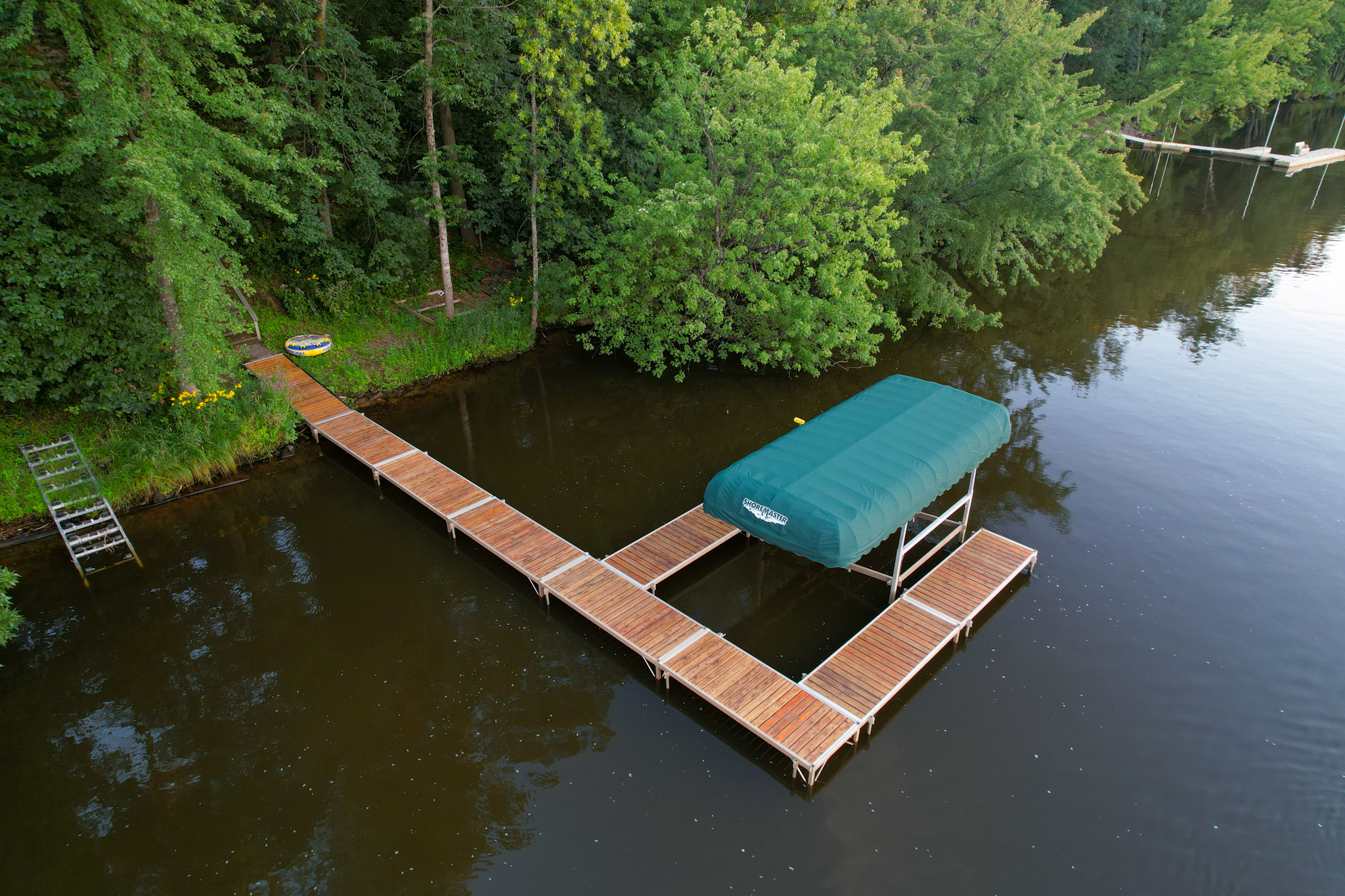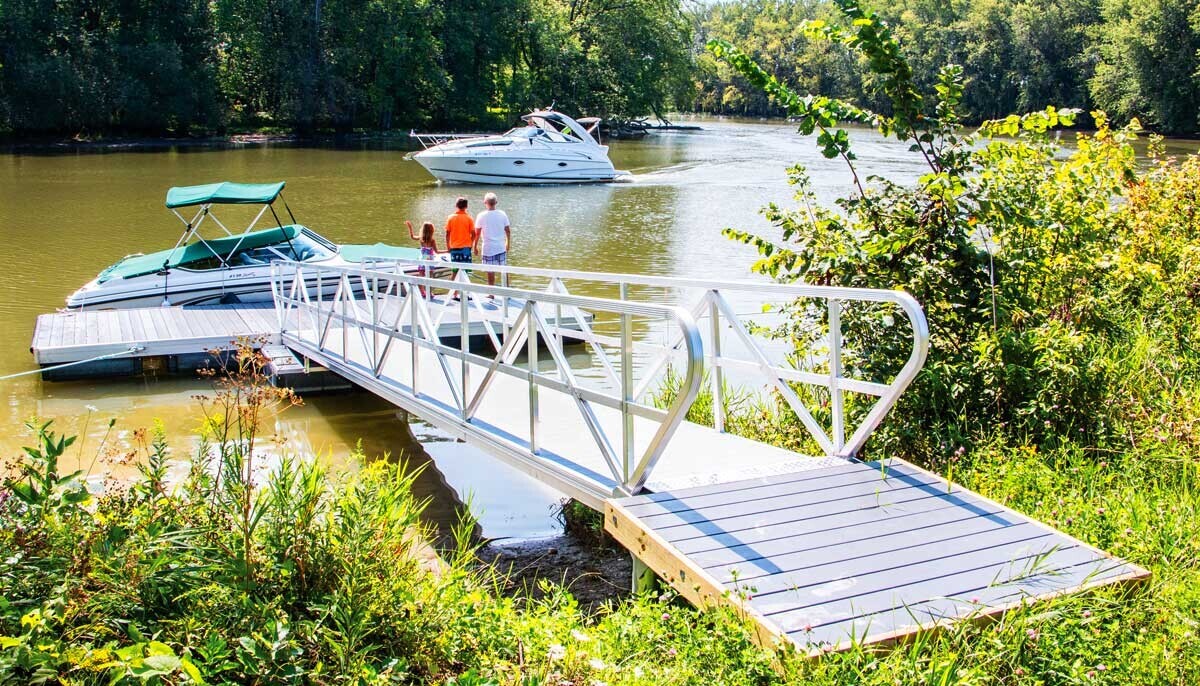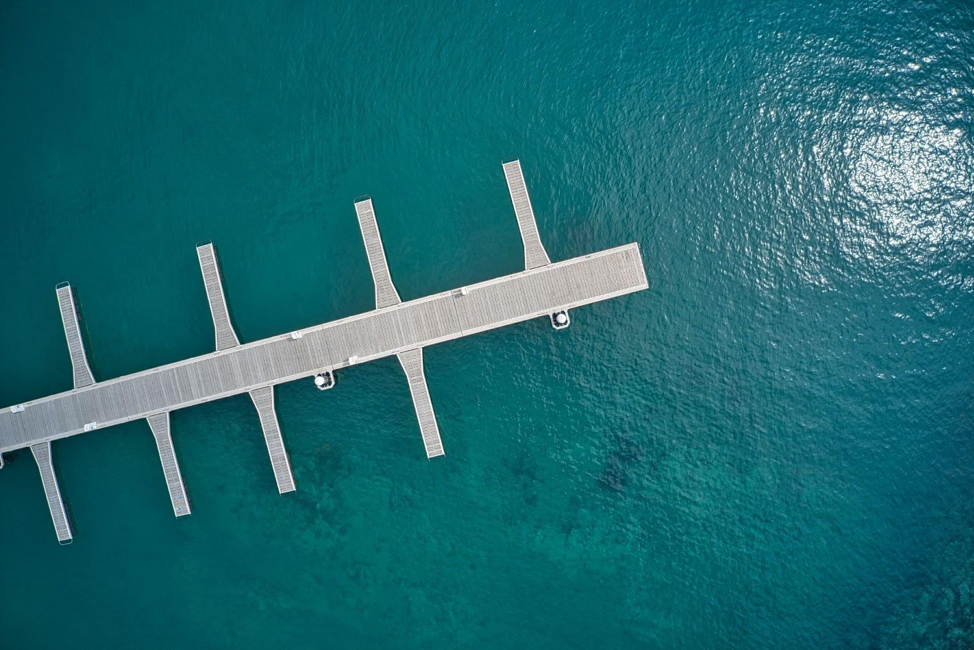The Importance of High Quality in Floating Dock Builder Selection for Resilient Docks
The Importance of High Quality in Floating Dock Builder Selection for Resilient Docks
Blog Article
The Ultimate Overview to Selecting the Best Floating Docks
Picking the suitable floating dock requires an extensive understanding of different components that affect both efficiency and long life. Factors such as dock types, materials, and necessary attributes significantly impact your decision-making procedure.
Recognizing Floating Dock Types
When selecting a floating dock, it is vital to comprehend the different kinds readily available, as each offers distinctive purposes and applications. Floating docks largely drop right into three categories: modular, stationary, and pontoon docks.
Modular docks are made up of specific areas that can be quickly constructed or reconfigured, making them ideal for changing water degrees and varied usages, such as leisure tasks or commercial operations. Their adaptability permits modification based upon particular requirements.

Pontoon docks are defined by their resilient structure, frequently made up of multiple pontoons that supply stability and support. They are specifically appropriate for bigger vessels and are generally made use of in marinas or for waterfront residential properties. Understanding these kinds help in choosing one of the most ideal floating dock to fulfill particular demands, making certain ideal capability and safety.
Secret Products for Sturdiness
Picking the right materials for floating docks considerably effects their durability and longevity. The most typical products consist of wood, plastic, metal, and composite materials, each offering unique benefits and constraints.
Wood, commonly preferred for its visual appeal, needs routine upkeep to hold up against dampness and decay. Pressure-treated lumber can enhance resistance to rot, but it might still be at risk to pests and weathering.

Plastic docks, made of high-density polyethylene (HDPE), are immune to deterioration, UV radiation, and effect, making them a prominent choice for seaside atmospheres. Their lightweight nature additionally promotes very easy setup and relocation.
Metal docks, normally constructed from light weight aluminum or galvanized steel, supply outstanding stamina and resilience. They are immune to corrosion, specifically when treated, yet may call for extra insulation to stop warm accumulation in warm climates.
Composite materials, incorporating wood fibers and plastics, supply the benefits of both timber and plastic, withstanding dampness and fading while requiring marginal upkeep. - floating dock company
Inevitably, the option of products ought to straighten with environmental conditions, planned use, and maintenance choices to ensure the floating dock stays functional and aesthetically pleasing gradually.
Crucial Features to Think About
While the selection of products is crucial, considering important functions for floating docks is similarly important to make sure optimum performance and customer satisfaction. One vital feature to evaluate is the dock's buoyancy capability, which establishes how much weight it can support without submerging. floating docks. This is important for suiting watercrafts, individual boat, and also recreational activities
Furthermore, mobility is a considerable consideration. Depending on your needs, you may want a dock that is easy to carry and take apart, especially if you plan to relocate it seasonally. Stability is another important feature; Check Out Your URL a well-designed floating dock needs to decrease movement triggered by wind and water currents, offering a protected platform for customers.
Safety and security functions, such as non-slip surface areas and rounded sides, are additionally essential to stop crashes, specifically in wet conditions. Furthermore, take into consideration the schedule of devices, such as cleats, bumpers, and ladders, which can enhance the capability of your dock.
Setup and Maintenance Tips
Establishing and preserving a floating dock requires mindful planning and attention to detail to guarantee its longevity and optimal efficiency. Begin by choosing a suitable place that reduces direct exposure to strong currents and waves, which can cause deterioration. Guarantee that the water deepness suffices for the dock's elevation and that it is secured firmly to protect against motion.
Throughout setup, adhere to the producer's standards carefully, as inappropriate assembly can jeopardize security. Use high-grade materials immune to deterioration, such as aluminum or treated timber, to enhance durability. Frequently evaluate all components, including drifts, adapters, and anchoring systems, for indications of damages or wear.
Maintenance is vital for expanding the life of your dock. Clean the surfaces regularly to stop algae buildup and look for any kind of loosened fittings that may need tightening up. If your dock makes use of flotation gadgets, ensure they stay undamaged and cost-free from leaks. Furthermore, take into consideration using safety coatings to wooden components to decrease weathering impacts. By adhering to these setup and upkeep ideas, you can appreciate a trusted and useful floating dock for several years ahead.
Budgeting for Your Dock
Budgeting for your dock is an essential action that can substantially affect your general fulfillment and investment in a waterside home. Developing a clear budget aids you browse the various alternatives readily available and guarantees you make educated decisions that align with your monetary capabilities.
Begin by determining the dimension and design of the dock you call for, as these elements will substantially affect the cost. Floating docks can differ considerably in useful link rate, depending upon products, buoyancy, and functions like accessories and ramps. Research different manufacturers and vendors to compare rates and comprehend the marketplace worth.
Along with initial prices, think about recurring costs such as upkeep, insurance policy, and prospective repairs. Designate funds for these recurring expenses to stay clear of surprises down the line. It's likewise sensible to budget plan for any needed permits or assessments, which might be required by regional laws.
Lastly, bear in mind the prospective return on investment. A well-planned dock can improve your property's value and allure, giving a positive economic influence in the long-term. By budgeting successfully, you can make certain that your dock meets your needs without jeopardizing your monetary stability.
Conclusion
To conclude, selecting the optimal floating dock requires a detailed evaluation of various elements, including dock types, products, crucial attributes, and installment procedures. Focusing on toughness and conformity with neighborhood guidelines eventually improves functionality and home value. Careful factor to consider of financial restrictions will certainly even more ensure an audio financial investment. By adhering to these guidelines, people can make enlightened choices that promote long-term complete satisfaction and use in water atmospheres.

While you could try here the option of materials is important, considering vital functions for floating docks is just as important to make sure ideal efficiency and customer satisfaction.Setting up and maintaining a floating dock needs cautious planning and interest to detail to guarantee its durability and optimum efficiency. Floating docks can differ dramatically in rate, depending on products, buoyancy, and attributes like devices and ramps.In final thought, choosing the suitable floating dock requires a detailed analysis of numerous variables, consisting of dock types, materials, vital functions, and installation processes.
Report this page